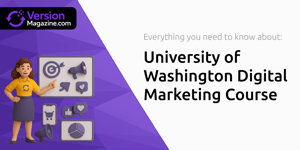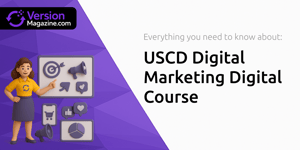Imagine stepping into each workday with the confidence that every dollar you earn already has a purpose. This vision of complete financial control is no longer a distant dream but an achievable practice through the combination of proactive budgeting and emerging early pay solutions. By assigning a purpose to every dollar before it even arrives, you can transform scattered spending patterns into a disciplined plan that fuels both your immediate needs and long-term ambitions.
In this article, we will explore how Earned Wage Access (EWA) and the principles of Zero-Based Budgeting work hand in hand to empower individuals, reduce financial stress, and foster a sense of stability. We will dive into best practices, vital statistics, and practical steps you can take today to ensure that no dollar goes unaccounted for, even before payday.
Understanding Earned Wage Access and Early Pay Solutions
Earned Wage Access (EWA) has rapidly become a cornerstone of modern employee benefits. These platforms allow workers to tap into wages they’ve already earned, rather than waiting for the traditional pay cycle. In 2022, over 7 million workers accessed more than $22 billion through EWA solutions, completing 214 million transactions nationwide.
The average EWA transaction size was $106, and typical users accessed roughly $3,000 annually over 27 withdrawals. Though most workers paid a modest fee—about $3.18 per transaction—this convenience often translates into meaningful reductions in late fees, overdraft charges, and urgent borrowing costs.
Beyond the numbers, the human impact is undeniable. Around 60% of EWA users report lower financial stress and 58% experience increased job satisfaction. With nearly half of sampled workers using EWA at least once a month in 2022—up from 41% in 2021—this service is clearly resonating with employees seeking flexible cash flow management.
The Power of Proactive Budgeting
At its core, proactive budgeting is about intentional money management. Rather than reacting to expenses as they arise, you anticipate each cost and allocate incoming funds accordingly. This methodology, often called Zero-Based Budgeting, demands that every dollar has a destination—be it rent, groceries, savings, or debt repayment.
Proactive budgeting can dramatically reduce the anxiety associated with paycheck-to-paycheck living. Consider that 86% of workers say financial stress negatively impacts their productivity, and those under strain are twice as likely to seek new employment. By pre-planning expenses, you gain:
- Clear visibility into cash flow
- A structured approach to savings and debt
- Reduced need for high-cost borrowing
- Enhanced confidence in meeting financial goals
Key EWA Metrics at a Glance
Core Steps to Assign Every Dollar a Job
Whether you receive a traditional paycheck or utilize early access, the following sequence helps you map every dollar before you spend:
- Review expected and actual income for the upcoming period.
- List and prioritize fixed expenses: rent, utilities, insurance, loan payments.
- Allocate funds for savings goals and emergency reserves.
- Designate money for variable costs: transportation, groceries, and essentials.
- Plan for discretionary spending and personal treats.
- Adjust allocations if income shifts or urgent needs arise.
Balancing Immediate Needs and Long-Term Goals
Early wage access can be a powerful tool, but it comes with trade-offs. Frequent small withdrawals, each with a fee, can accumulate into an effective annual percentage rate exceeding 100%. To harness EWA wisely, consider these practices:
- Use EWA selectively for true emergencies, not routine expenses.
- Track cumulative fees and compare them against potential late charges.
- Set a monthly withdrawal limit to prevent overuse and fee creep.
- Pair EWA access with a budgeting app to monitor real-time balances.
Employer’s Role in Financial Well-Being
Employers are beginning to recognize that financial health translates into workplace performance. Approximately 96% of employers say offering EWA helps attract talent, and 93% believe it boosts retention. By combining early pay with financial education, companies can:
Build a culture of financial empowerment that complements compensation packages.
Offer workshops or digital tools to explain the mechanics of fees, budgeting, and goal-setting.
Provide access to personalized coaching or resources that guide employees beyond simple cash advances toward sustained stability.
Mitigating Risks and Cultivating Financial Resilience
While EWA reduces reliance on high-interest credit and late fees, it is not a silver bullet. Workers who depend on early access too heavily may fall into a cycle of fees and repeated withdrawals. To prevent this, establish a robust emergency fund and explore side-income opportunities. Research shows:
Nearly 19 million Americans remain unbanked or underbanked, and many cannot cover a $400 emergency without resorting to credit. Building even a small buffer—$500 to $1,000—can drastically cut the need for frequent EWA use.
Taking Control: Practical Next Steps
1. Automate portions of your budget. Schedule transfers for savings and bills on payday or after EWA withdrawal.
2. Review your past three months of spending. Identify patterns and set realistic adjustments.
3. Experiment with envelope or container methods—digital or physical—to visualize your allocations.
4. Engage with educational resources. Many EWA providers integrate brief budgeting tutorials.
Conclusion: Empowerment at Every Pay Cycle
By combining proactive budgeting with judicious use of Earned Wage Access, you can build a framework that anticipates every cost and capitalizes on the flexibility of early pay. This approach not only alleviates financial stress but also fosters a mindset of intention and foresight. As you embrace the practice of giving every dollar a job—even before payday—you will find yourself on a steadier path toward financial resilience and freedom.
References
- https://www.dailypay.com/resource-center/blog/8-stats-that-prove-earned-wage-access-improves-workplace-productivity/
- https://www.empower.com/the-currency/work/early-wages-news
- https://blog.onesourcevirtual.com/resources/blog/20-striking-earned-wage-access-statistics
- https://flexwage.com/111-statistics-that-support-earned-wage-access-benefits/
- https://www.chime.com/blog/payday-budget-routine/
- https://www.themoneyprinciple.com/what-to-do-when-you-have-no-money/
- https://www.consumerfinance.gov/data-research/research-reports/data-spotlight-developments-in-the-paycheck-advance-market/










